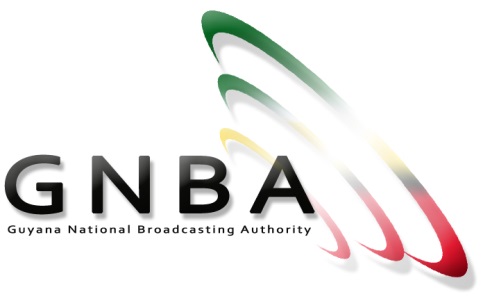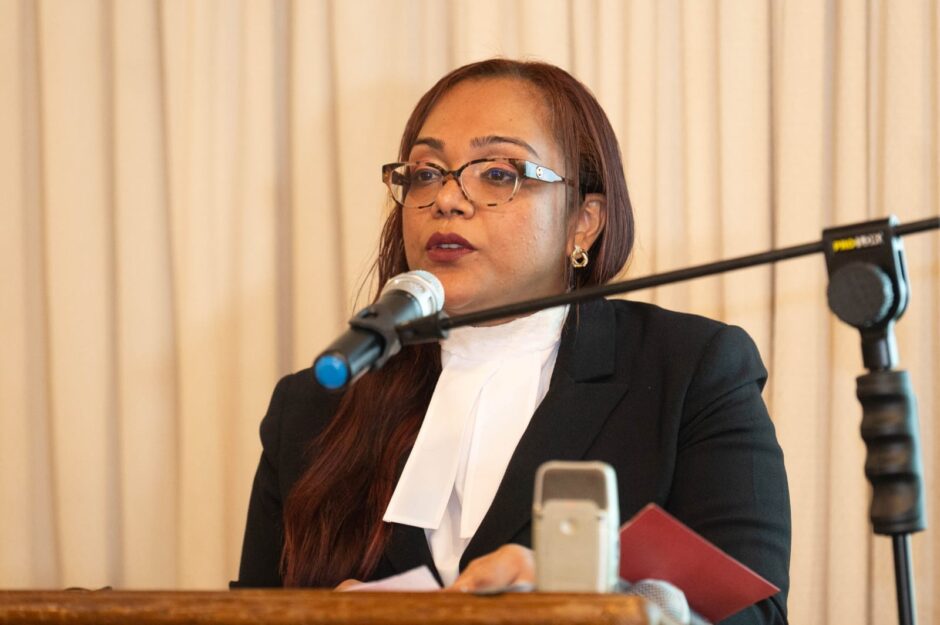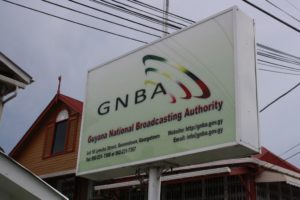Speech delivered by the Chairperson of the GNBA Board- Attorney-at-Law, Ms. Latchmie Rahamat – Stakeholders’ Engagement & Development Session
, I wish to underscore the importance of compliance with broadcasting
regulations and the crucial role that broadcasters play in maintaining both local and
international broadcasting standards. In this digital age of rapid advancements in technology
and increasingly interconnected global networks, it has become essential for broadcasters to
adhere to regulations and uphold these standards to ensure the integrity, accuracy, and
accountability of their content.
Broadcasting regulations are established by the regulatory bodies to safeguard the interests of
the general public and maintain a fair, unbiased, and responsible media environment. These
regulations aim to strike a balance between freedom of speech and protecting individuals and
societies from harmful, misleading or offensive content. By Complying with these
Regulations, broadcasters contribute to the creation of an
informed, engaged, and well-rounded citizenry. Your role in this
process cannot be understated, undervalued or neglected.
Furthermore, adherence to broadcasting standards and regulations is vital in an increasingly
globalized media landscape, which ultimately this is the bigger picture. These standards ensure
that broadcasters maintain ethical practices, respect cultural diversity, and promote responsible
journalism. By adhering to these standards, broadcasters contribute to the development of a
unified global media ecosystem, where ideas can be shared, perspectives can be explored, and
understanding and empathy can grow.
To achieve compliance with broadcasting regulations it is crucial for broadcasters to establish
robust internal policies and procedures that guide their content creation and distribution
processes. These policies should encompass guidelines on accuracy, fairness, impartiality, and
accountability in reporting, as well as measures to prevent the spread of misinformation and
hate speech.
Additionally, broadcasters should invest in the professional development of their staff, ensuring
they are equipped with the necessary skills and knowledge to navigate the complex landscape
of regulatory requirements and evolving international broadcasting standards. This includes
training on journalistic ethics, fact-checking methodologies, and understanding cultural
sensitivities.
Furthermore, broadcasters must leverage technological advancements in content verification
and moderation tools to enhance their ability to monitor and control the content they produce
and distribute. These advanced tools can help identify potential breaches of regulations, assess
the accuracy and objectivity of information, and prevent the dissemination of harmful or
offensive content.
Collaboration between broadcasters and regulatory bodies such as the GNBA is essential in
achieving compliance and maintaining standards. It is against this backdrop that the GNBA has
conceived and embarked upon this Broadcaster’s engagement and why we are gathered here to
day. Since we have recognized that regular dialogue and open communication channels enable
broadcasters to stay informed about evolving regulations and industry best practices, while also
providing them with an opportunity to contribute their expertise and insights in shaping
effective regulations that balance freedom of expression with responsible broadcasting.



